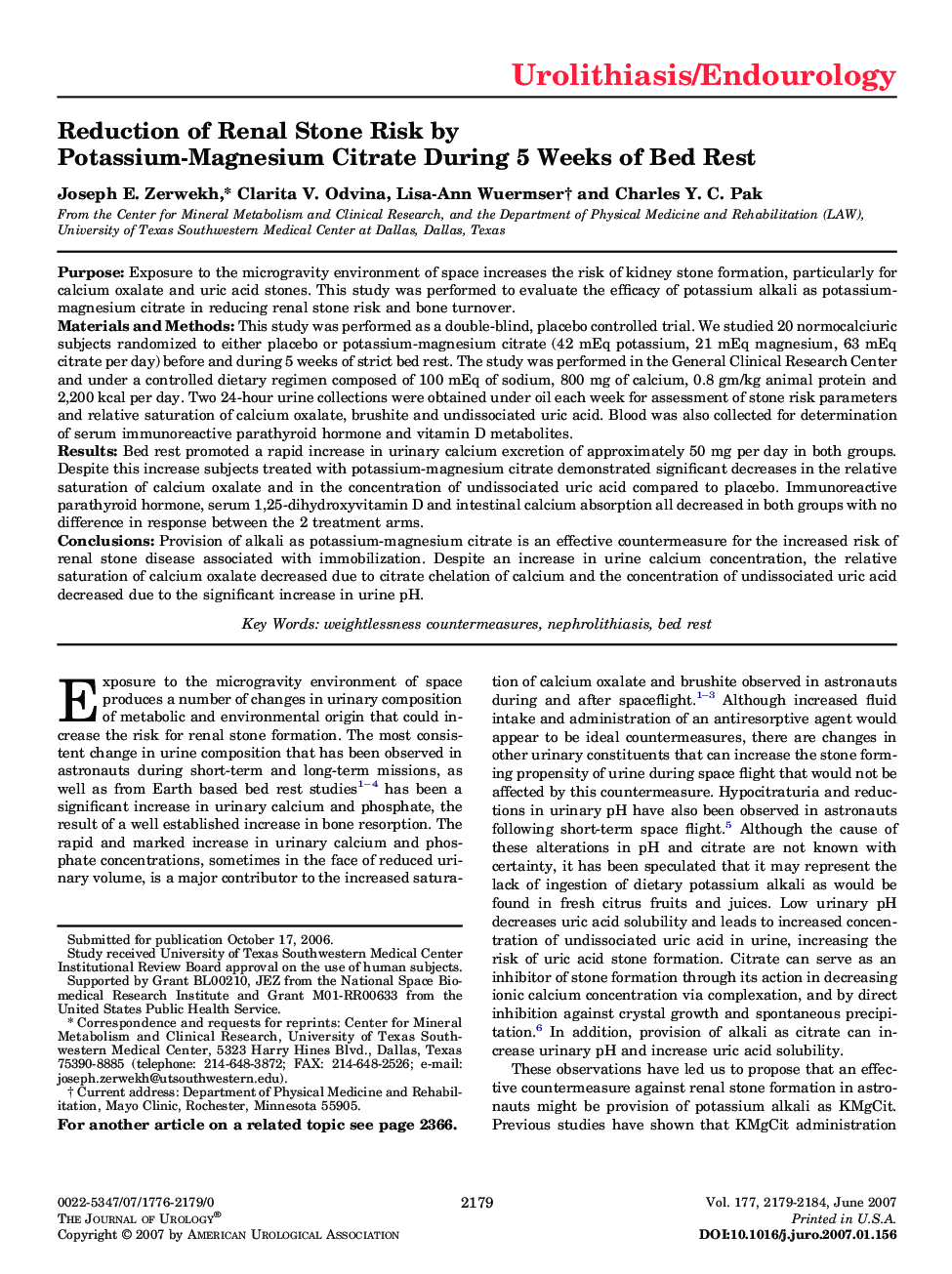| کد مقاله | کد نشریه | سال انتشار | مقاله انگلیسی | نسخه تمام متن |
|---|---|---|---|---|
| 3879393 | 1599008 | 2007 | 6 صفحه PDF | دانلود رایگان |

PurposeExposure to the microgravity environment of space increases the risk of kidney stone formation, particularly for calcium oxalate and uric acid stones. This study was performed to evaluate the efficacy of potassium alkali as potassium-magnesium citrate in reducing renal stone risk and bone turnover.Materials and MethodsThis study was performed as a double-blind, placebo controlled trial. We studied 20 normocalciuric subjects randomized to either placebo or potassium-magnesium citrate (42 mEq potassium, 21 mEq magnesium, 63 mEq citrate per day) before and during 5 weeks of strict bed rest. The study was performed in the General Clinical Research Center and under a controlled dietary regimen composed of 100 mEq of sodium, 800 mg of calcium, 0.8 gm/kg animal protein and 2,200 kcal per day. Two 24-hour urine collections were obtained under oil each week for assessment of stone risk parameters and relative saturation of calcium oxalate, brushite and undissociated uric acid. Blood was also collected for determination of serum immunoreactive parathyroid hormone and vitamin D metabolites.ResultsBed rest promoted a rapid increase in urinary calcium excretion of approximately 50 mg per day in both groups. Despite this increase subjects treated with potassium-magnesium citrate demonstrated significant decreases in the relative saturation of calcium oxalate and in the concentration of undissociated uric acid compared to placebo. Immunoreactive parathyroid hormone, serum 1,25-dihydroxyvitamin D and intestinal calcium absorption all decreased in both groups with no difference in response between the 2 treatment arms.ConclusionsProvision of alkali as potassium-magnesium citrate is an effective countermeasure for the increased risk of renal stone disease associated with immobilization. Despite an increase in urine calcium concentration, the relative saturation of calcium oxalate decreased due to citrate chelation of calcium and the concentration of undissociated uric acid decreased due to the significant increase in urine pH.
Journal: The Journal of Urology - Volume 177, Issue 6, June 2007, Pages 2179–2184